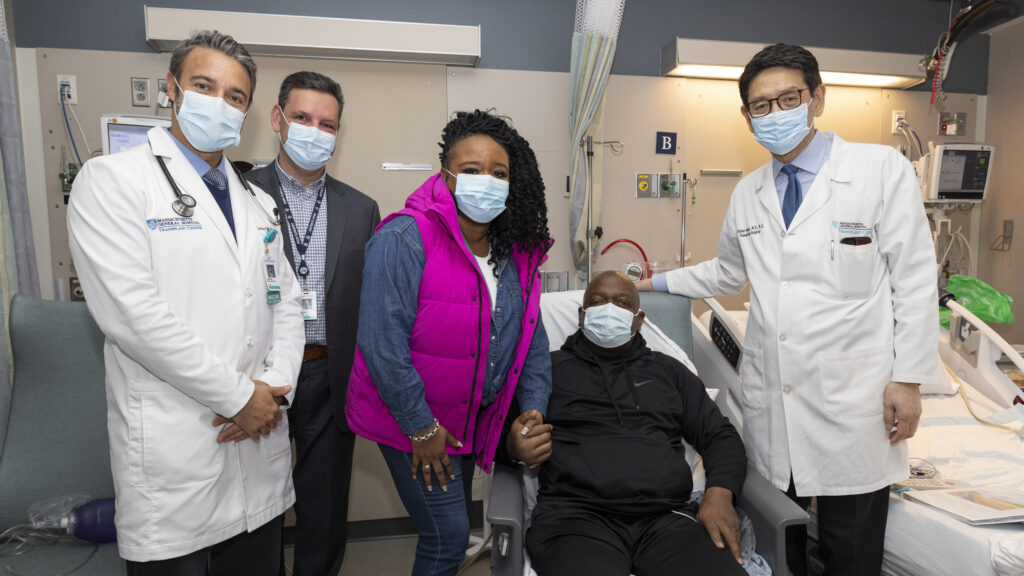“We have no indication that [Slayman’s death] was the result of his recent transplant,” Mass. General said in the statement.
Slayman, who lived in Weymouth and worked as a manager with the state Department of Transportation, developed kidney failure as a result of diabetes and hypertension and had been on dialysis for years, Dr. Winfred Williams, associate chief of the renal division at Mass. General and a transplant nephrologist who knew Slayman for more than a decade, said in March.
Slayman received a donated human kidney in 2018, which eventually failed. Mass. General doctors implanted a pig kidney on March 16 and Slayman was released from the hospital April 3. Slayman was 62 years old at the time of the operation.
“Mr. Slayman will forever be seen as a beacon of hope to countless transplant patients worldwide and we are deeply grateful for his trust and willingness to advance the field of xenotransplantation,”Mass. General’s statement said. “We offer our heartfelt condolences to Mr. Slayman’s family and loved ones as they remember an extraordinary person whose generosity and kindness touched all who knew him.”
In March, the news that Slayman’s transplant had been successful was hailed as a milestone in research into xenotransplantation — transplantation of organs or tissues from animals to humans — which has accelerated in recent years.
Recent efforts have involved pigs, whose organs are modified so that they become more like humans’.
Teams at NYU Langone Health and the University of Alabama at Birmingham Heersink School of Medicine have transplanted pig kidneys into brain-dead people whose relatives agreed to the experiment; in one case the kidney lasted two months.
In the last two years, doctors at the University of Maryland transplanted pig hearts into two men, but both died within two months. And last year Mass. General researchers reported that gene-edited kidneys functioned well in monkeys for an average of 176 days and in one animal for more than two years.
The developments have continued since Slayman’s operation. In April, surgeons at NYU Langone Health performed the first combined mechanical heart pump and gene-edited pig kidney transplant surgery on a 54-year-old woman who suffered from heart and kidney failure.
Slayman’s procedure was viewed as a medical milestone.
When he was released from the hospital, Slayman called it “one of the happiest moments of my life” and said he hoped his story would signal hope for others in need of a kidney transplant.
“Rick accomplished that goal and his hope and optimism will endure forever,” his family said Saturday. “His legacy will be one that inspires patients, researchers, and health care professionals everywhere.”
Previous experiments have also transplanted pig kidneys in nonhuman primates. In the last two years, two men have received genetically modified pig hearts and lived for up to seven weeks.
Slayman’s family also thanked his team of doctors, “who truly did everything they could to help give Rick a second chance.”
“Their enormous efforts leading the xenotransplant gave our family seven more weeks with Rick, and our memories made during that time will remain in our minds and hearts,” they said.



